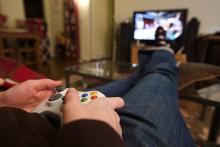Measuring Digital Exclusion

We assume that technologies will improve our lives, work and quality of life. For many people such benefits are undoubtedly true. However, does this apply to everyone? A House of Lords report in 2023 proposed that the "digital divide is undermining efforts to improve UK productivity, economic growth and socio-economic inclusion" and that groups likely to be most effected included the elderly, with 31 per cent of people aged over 65 not using the internet at home, compared with only 4 per cent of those aged 35-44 (https://publications.parliament.uk/pa/ld5803/ldselect/ldcomm/219/21902.htm ).
A useful project would be to explore options for research in this area. Perhaps formulate a survey strategy, questionnaire, workshop, or proposed data sources that might be used for subsequent exploration. Proposals would need to be informed by background research and considerate of research rigour and ethics.


